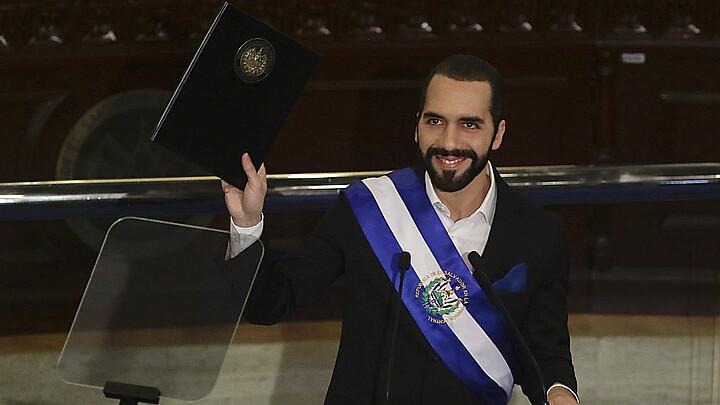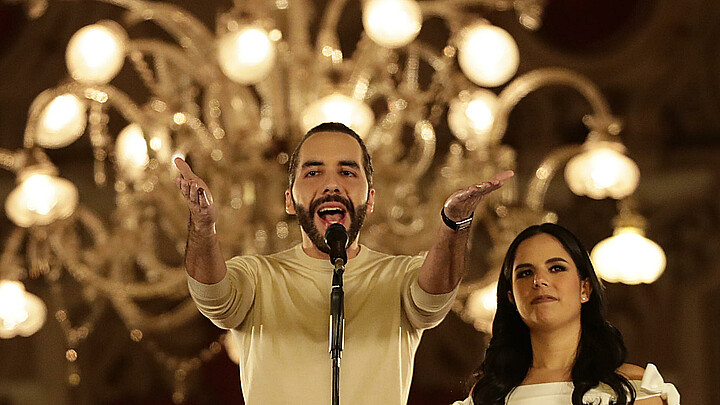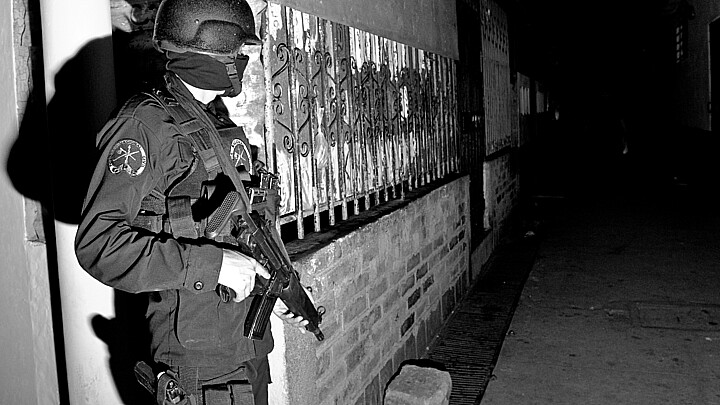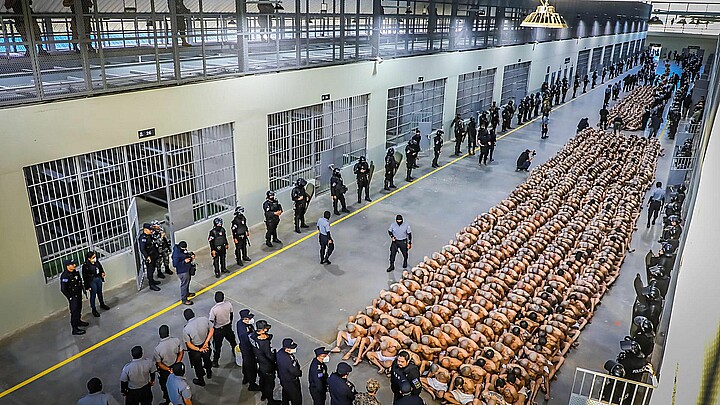Politics
El Salvador declares state of emergency as gang violence reaches historic levels
A total of 62 homicides were reported in El Salvador on Saturday – the highest daily homicide toll in the 6.5 million person country so far this century
March 31, 2022 12:21pm
Updated: March 31, 2022 12:23pm
As gang violence continues to surge in El Salvador, the Central American country’s Congress declared a state of emergency that temporarily suspends several constitutional protections, CNN reported.
According to Celia Medrano, a longtime human rights advocate, a total of 62 homicides were reported in El Salvador on Saturday – the highest daily homicide toll in the 6.5 million person country so far this century.
El Salvador’s young, autocratic President Nayib Bukele responded to the figures by asking Congress to approve the emergency measures for 30 days, which include the suspension of freedom of assembly, the right to a state-sponsored legal defense upon detention, the inviolability of correspondence and communications (authorities will be able to intercept communications without a court order), and the period of administrative detention, which is now extended beyond 72 hours, the Washington Post reported.
"We approve the exceptional regime, which will allow our government to protect the lives of Salvadorans and confront criminality head-on," said Ernesto Castro, the president of Congress, after holding an extraordinary session early on Sunday.
After the vote, Bukele praised the move.
"The measures to be taken will be implemented by the relevant institutions and announced only when necessary. For the vast majority of people, life continues normal. God bless us all," Bukele wrote on Twitter.
According to government figures, El Salvador recorded a rate of 103 homicides for every 100,000 people in 2015 – a figure that has reportedly fallen since Bukele’s inauguration in 2019.
Critics, however, have blamed the falling levels of violence on Bukele’s willingness to cut deals with criminal gangs and have said that the president’s time in office has been marked by democratic backsliding as he continues to weaken El Salvador’s already fragile democratic institutions.
In December of last year, a Biden administration official warned that Bukele is heading in a “much more authoritarian” direction than former Venezuelan dictator Hugo Chavez took when he was first elected in 1998.
Juan Gonzalez, special assistant to the president and National Security Council senior director for Western Hemisphere affairs, told La Voz de America that "Many of Bukele's actions, I believe, are taking this country (El Salvador) in a much more authoritarian direction than the one we saw at the beginning of Hugo Chavez's years."
Gonzalez’s remarks were made as bilateral relationships between Washington and San Salvador stand at an all-time low. The Biden administration has publicly voiced concerns over the Salvadoran government’s dismissal of judges, the closure of an anti-corruption body, the restriction of access to information and an increase of disappearances in El Salvador since the young autocrat first took office.
Amnesty International called on the Salvadoran government Wednesday to respect human rights as it tries to rein in crime, expressing concern about reported unprovoked arrests and food rationing in prisons.
"We call on President Nayib Bukele and the State of El Salvador to ... guarantee that the design and implementation of public security policies put respect for human rights at the center,” Amnesty said on Twitter.










